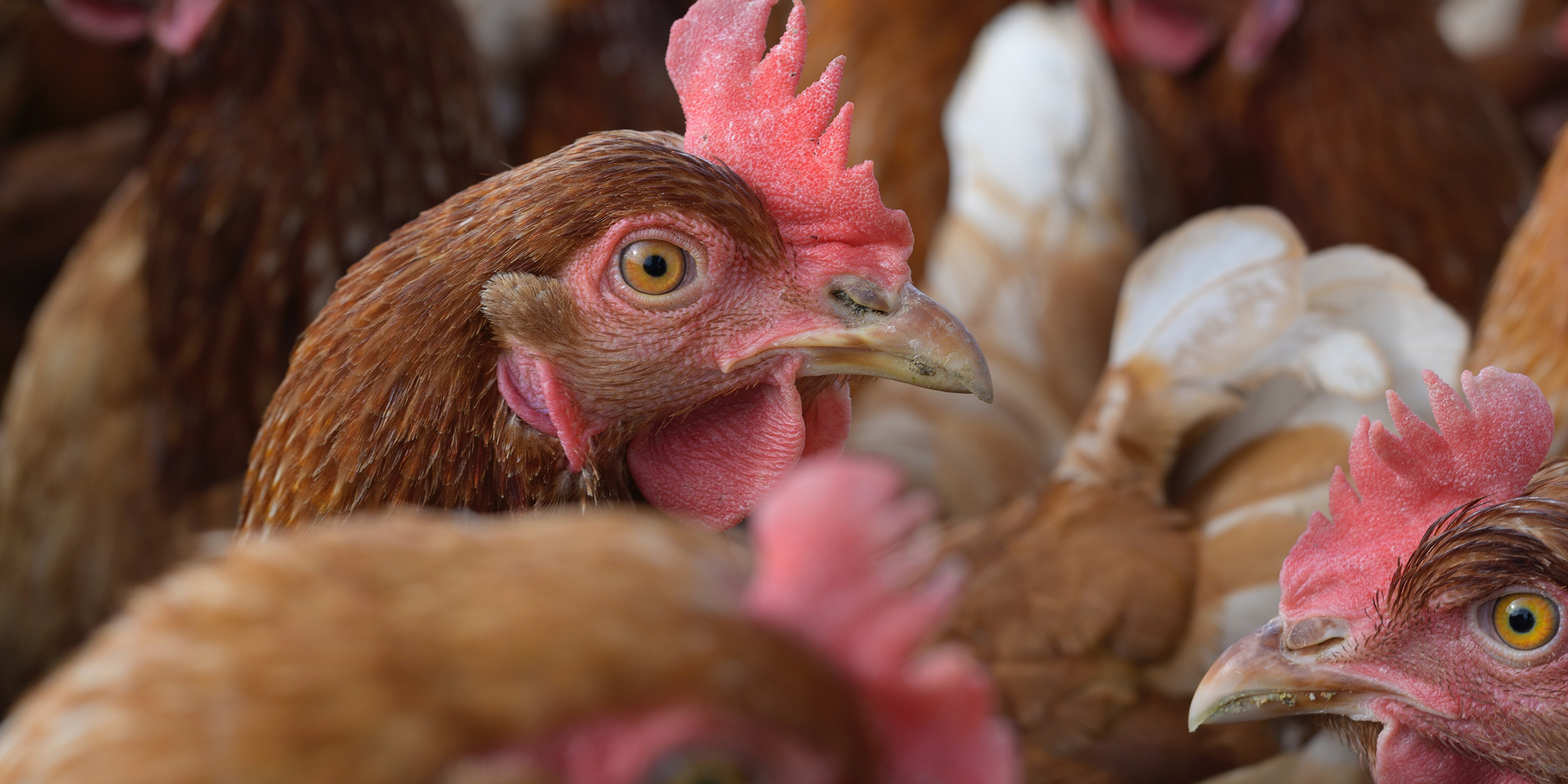Originally published 17 December 2002
Oh, dear, what to eat?
I should never have read Michael Pollan’s article on animal rights November 10 [2002] in The New York Times Magazine. He asks us to acquaint ourselves with how food animals are raised on so-called factory “farms” — confined motionless in tiny indoor pens, docked, clipped, force fed, and dosed with growth hormones and antibiotics. At least take a look, he wrote, before making your trip to the market.
I took a look. It’s not a pretty sight.
Pollan is a journalist who writes mostly about environmental issues. He knows that our every bite of food has environmental consequences of some sort. His overarching ethic is that our diet should minimize the suffering of animals (including wild animals) and degradation of the natural environment.
He argues that universal vegetarianism would not serve either animals or the environment. For example, many wild field animals would be killed as grazing land succumbed to the plow and reaper, and more artificial fertilizer would be required to replace manure.
He is convinced, however, that if we saw the manner in which much of our meat is currently produced, many of us would change our eating habits. And he may be right. Certainly, I have started paying more attention to where my meat comes from.
Remember the old saying: As happy as a pig in slop? The pig that grows to maturity wallowing in mud, with sunlight on its back, and is then killed quickly and painlessly, makes an acceptable meal, Pollan suggests. Ditto for happily clucking barnyard hens and lowing cattle on the range, but not so the animal that is penned in a concrete shed.
The ethics of meat-eating is just one facet of the prickly issue of animal rights. My leather belt cost some poor creature its life. Furs? Don’t even mention fur. And what about animal experimentation for medical research or drug testing? Or animal testing of cosmetics?
OK, I won’t eat veal cattle that have been raised in restrictive cages, or use a deodorant that was tested on rats. But I kill mice in the pantry and eat fish without a quibble. I wear leather shoes. I won’t pass up a drug or medical procedure that may prolong my life, or someone else’s life, though animals may have suffered in its development.
As always, I’m doing some moral arithmetic when making these decisions, balancing, as best I can, degrees and kinds of suffering. The lives of how many experimental animals are worth a vaccine for AIDS? How many woodchucks killed by a plow equal one humanely slaughtered range steer? If a healthy sow in mud and sun were allowed a moment of rationality, how would it vote on universal human vegetarianism?
For most of our evolutionary history, our species were hunter-gatherers who depended for survival upon the flesh of wild animals, sometimes hunting animals to extinction. Then, about 10,000 years ago, domesticated animals and plants appeared on the scene, and our ancestors settled down.
Although guided by human cunning, the domestication of animals was not entirely the result of humans imposing their will on animals. Rather, humans and animals evolved together for mutual benefit. Domesticated animals provided their human keepers with eggs, milk, and flesh. Humans provided the animals with food and protection from predators.
With the invention of agriculture, people began to live together in ever-larger crowds. Ethical systems, enforced by law and buttressed by religion, evolved to make collective life bearable. We are omnivores by nature; we are ethical omnivores at least partly because of animal domestication.
As ethical omnivores, we can consider the ethics of eating meat, and especially of eating the products of industrial agriculture, with its dependence on artificial confinement, growth hormones, antibiotics, and bottom-line commitment to corporate profit.
We might even consider directing more of our income to organically grown and harvested plant food (and less, say, to gas-guzzling cars), although it is hard to imagine how organic farming will feed the billions of people in the developing world, especially if animals were removed from the equation.
I recall once hearing anthropologist Margaret Mead define civilization as the ever-expanding circle of those whom we do not kill. At first, anyone outside of the extended family was fair game. Then we allied ourselves in nation states. Now, for many of us, the circle includes everyone of our own species. Animal-rights advocates urge us to expand the circle to embrace other species.
Does that mean letting domesticated animals become extinct? Shutting down the fishing fleets? Denying the poor farmer in Mozambique the right to eat his cow? At the very least, it seems to me, an affluent, civilized society should outlaw the barbarisms of industrial agriculture.
Meanwhile, as I eat my antibiotic-free, organically grown, free-range chicken — for which I paid a premium price — I will ponder how to feed the 800 million malnourished people in less affluent circumstances who don’t have the privilege of debating the complexities of animal rights.



